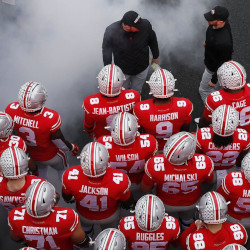If you’re an avid college football fan or looking to get into online football betting, understanding college football power ratings is essential for a successful season. Power ratings are numerical values assigned to each team that reflect their strength and performance. These ratings are used by sports analysts, bettors, and even the selection committee when determining team rankings.
College football power ratings consider various factors contributing to a team’s strength. These factors include team performance in previous seasons, the strength of the schedule, player statistics, coaching strategies, and even home-field advantage.
When looking at power ratings, it is essential to understand that they are not a definitive measure of a team’s ability to win a game. Instead, they provide valuable insights into a team’s relative strength compared to its opponents. Analyzing these ratings lets you make more informed decisions about betting on college football games.
Factors That Affect College Football Power Ratings
 Several key factors influence college football power ratings. Understanding these factors will help you better interpret the ratings and make more accurate predictions.
Several key factors influence college football power ratings. Understanding these factors will help you better interpret the ratings and make more accurate predictions.
1. Team Performance
A team’s performance in previous seasons plays a significant role in determining its power rating. Teams that consistently perform well and achieve high rankings will have higher power ratings. On the other hand, teams with a history of poor performance will have lower ratings. Considering a team’s recent trends and performance against strong opponents is essential.
2. Strength of Schedule
Another critical factor in determining power ratings is the strength of the schedule. Teams that face more formidable opponents and perform well against them will receive higher ratings. Conversely, teams with easier schedules or struggle against strong opponents will have lower ratings. Evaluating a team’s schedule and the quality of their opponents is vital when analyzing power ratings.
3. Player Statistics and Injuries
Individual player statistics can also impact a team’s power rating. Key players who consistently perform well and contribute significantly to their team’s success will boost their rating. Conversely, injuries to star players can hurt a team’s rating. When analyzing power ratings, it is essential to consider the impact of individual players on a team’s overall performance.
Mastering College Football Power Ratings for a Winning Season
In conclusion, understanding college football power ratings is crucial for anyone looking to excel in online sports betting or gain deeper insights into the game. These ratings provide valuable information about a team’s relative strength compared to its opponents, considering various factors such as team performance, strength of schedule, and player statistics.
By utilizing strategies such as analyzing matchups, considering home-field advantage, and monitoring power rating changes, you can make more informed decisions when you bet on football games. Remember that power ratings are just one tool in your arsenal and should be used alongside other factors such as injury reports, weather conditions, and expert analysis.
So, whether you are a seasoned bettor or a passionate fan looking to enhance your college football experience, mastering college football power ratings will undoubtedly give you an edge. Use these ratings wisely, and may your season be filled with successful bets and thrilling games!
Bet on college football games with VOBET, the best sportsbook in the world!


